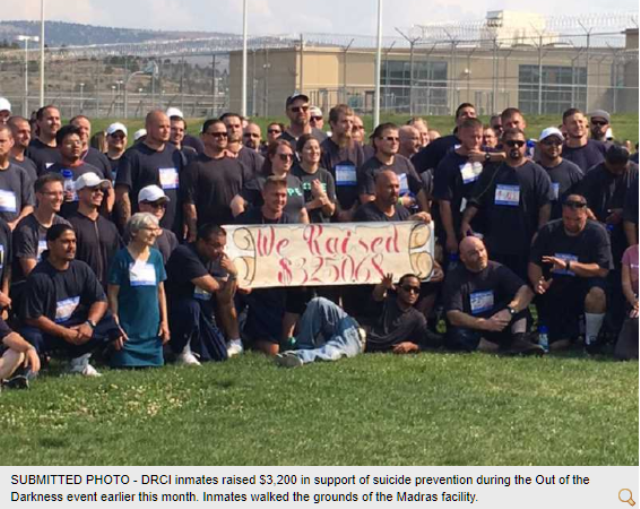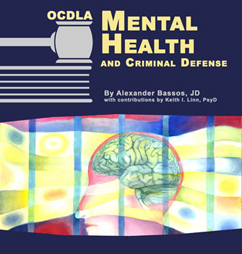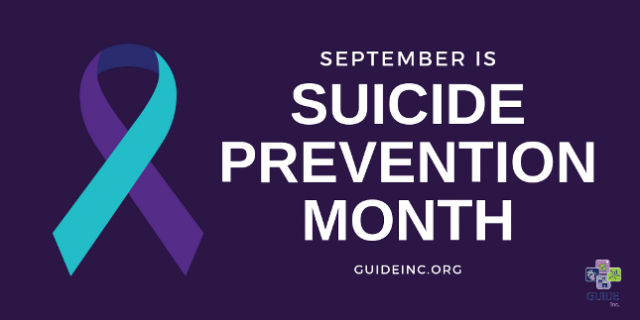
VOD Field Editor Ricardo Ferrell, a trained “Prisoner Observation Aide,” decries mental health “treatment” afforded to MDOC residents
Drug regimen is the only focus, with no true therapy, counseling
25% of those confined in the MDOC diagnosed with severe mental illness
By Ricardo Ferrell
VOD Field Editor
September 23, 2020

Ricardo Ferrell
Note: Ricardo Ferrell was trained to be a “Prisoner Observation Aide” and has had 8 years of experience in assisting prisoners thought to be in danger of committing suicide, and dealing with their mental health issues.
September has been designated as National Suicide Prevention Month. But the issue of mental illness in many ways is glossed over by high paid Qualified Mental Health Professionals (QMHP’s) who for the most part don’t seem to be too concerned about the mental health of prisoners. I have personally witnessed over a thousand severely mentally ill individuals suffer from acute disorders. During many of the episodes, I have to make decisions in breakneck speed as the situations are dire and could mean life or death for the individual.
In 2012, former MDOC director Daniel Heyns adopted a program from the U.S. Federal Bureau of Prisons, which tasks prisoners with watching suicidal inmates. He introduced the Prisoner Observation Aide Program, which consists of carefully selected prisoners receiving specialized training to become aides in visually observing those experiencing episodes of suicidal and self-injurious behavior, in an effort to prevent them from engaging in harmful behaviors.
“I was on the brink of losing my sanity. I had unknowingly been suffering for years from a Bipolar 1 Disorder, and it caused me all sorts of unwanted problems,” a 36-year-old man housed in a Residential Treatment Programs told me. He is serving 15 years for Armed Robbery and Possessing a Firearm.

Kevin DeMott is a mentally ill inmate with bipolar and personality disorders. Corrections officers at the Ionia Maximum Correctional Facility chained DeMott to his bed and secured a padded helmet to his head after he refused to stop banging his head against the wall, which is stained with blood.
He said he had episodes of extreme hyperactivity, a disrupted circadian rhythm (affecting sleep), flights of ideas, and impulsive moods that finally led to that diagnosis.
He said that after he received an accurate diagnosis in 2010, punitive measures were employed in response to his mental health symptoms, including numerous incidents of wrongful isolation, Additionally, inadequate medications such as Klonopin, Risperdal, and Lithium were prescribed.
During the administrations of Michigan Govs. John Engler and James Blanchard, the majority of mental institutions/hospitals were shutdown, sending many patients to live on the streets. Jails & prisons became immediate dumping grounds.
Today, there are roughly 10,000 inmates who have been diagnosed as severely mentally ill, which is just under 25% of the total Michigan Department of Corrections population. The MDOC has established Mental Health Services, which provide s prison-based services to prisoners with serious mental illness/severe disorders. But they still fall far short of meeting the needs of this group of individuals.

Mental health treatment for prisoners in Norway means unarmed guards, art and music therapy.
Mostly, you will see many of these people on any given day heavily prescribed various psychotropic medications, i.e., Haldol, Prolixine, Tegretol and other mind controlling drugs. Extensive counseling and psycho-therapeutical aspects of treatment which are needed are missing, and the treatment received lacks any real substance and value.
I have been on the frontline for the past eight years, observing individuals deal with their mental illnesses and rendering my skills and services trying to curtail and/or prevent them from engaging in suicidal and self-injurious behavior.
My role lets me know of my worth in helping others. It gives me a sense of purpose, thus adding meaning to my life. What better way to make amends for my wrongs, especially where someone lost their life, then to be in a position to help save someone else’s life?
I was particularly touched when I learned of the suicide of Janika Edmund at the Women’s Huron Valley Correctional Facility near Ypsilanti. I was more disturbed due to the circumstances surrounding her untimely death. The investigation revealed that Edmund hung herself in a cell.
Shockingly, two employees, a corrections officer and a prison counselor in her housing unit, placed a bet, one saying she would commit suicide, the other saying she wouldn’t, But get this, you will never guess what the wager was. These uncaring individuals actually bet each other lunch, which goes to show what they think of the lives of people incarcerated.
There’s virtually no real accountability for the egregious actions of employees within the Michigan Department of Corrections. Their salaries are enormously inflated, as if their work peeformance actually merits the $25-$40 an hour jobs.

In Mental Health & Criminal Defense, Alex Bassos, JD, analyzes every aspect of a criminal case involving clients with mental health or cognitive issues and challenges attorneys to “push back against the state’s attempts to punish a person for having a mental illness.
Mental health services by psychologists, social workers and therapists in this system are a joke. They worsen the conditions of severely mentally ill inmates in the new mental institutions known as the MDOC.
With 95% of all Michigan prisoners eventually going to be released, one would think that those who suffer from mental illness would be properly assessed and treated by a Qualified Mental Health Professional. But the main objective seems to be simply putting this special needs group on psych meds and sending them on their merry way. In many instances where those individuals experience episodes of harmful behaviors to themselves, the approach by staff is punitive, rather than treating and helping to heal the individual.
Many prisoners who are housed in the Residential Treatment Program, are treated badly by prison guards with physical, verbal and emotional abuse. Where do we go from here? The reality is that those who suffer from severe mental illness do not belong in a prison setting, they should be in a mental institution where they can receive the professional help they need.
STOP WAREHOUSING THE MENTALLY ILL!

Related:




